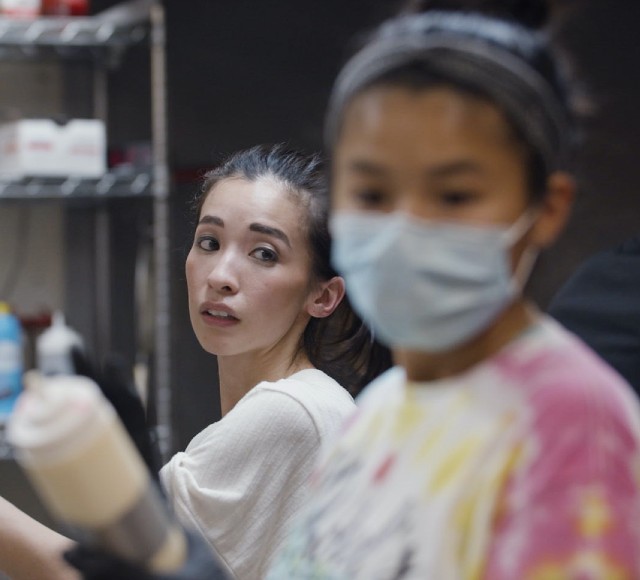Check out more video interviews on our YouTube channel.
You can’t get much more personal than David Siev’s documentary, Bad Axe, named after the small town in Michigan where his family lived and ran the popular community restaurant, Rachel’s. Things took a drastic turn in 2020 when COVID-19 hit the country, and then-President Donald Trump used his platform to target China, which in turn, began anti-Asian hatred cropping up across the nation. Michigan is a swing state, but Bad Axe, Michigan is very much Trump country.
Even before that, David’s family – led by father Chun, who managed to escape the killing fields of Cambodia, and his Mexican mother – had to buckle down when COVID made it difficult to keep Rachel’s business afloat. Things got even worse when they started to experience pushback from the Siev’s once-friendly neighbors, many who didn’t want to follow COVID protocols, like wearing a mask inside their restaurant.
Bad Axe is an incredibly powerful and moving cinema verité film that creates a surprisingly effective cross-section of the events of 2020, though seen through the eyes of Siev’s Asian-Mexican-American family. It’s a highly relatable story that’s particularly enlightening for those of us that live in more liberal areas of the country.
This past weekend, Siev won the Critics Choice Documentary Award for First Documentary Feature.
CinemaDailyUS’s Edward Douglas spoke with Siev recently, a video interview that you can watch above.
Bad Axe will open in select theaters on Friday, November 18 following its recent New York premiere at DOC-NYC.

The summary of the film:
After leaving NYC for his rural hometown of Bad Axe, Michigan, at the start of the pandemic, Asian American filmmaker David Siev documents his family’s struggles to keep their restaurant afloat. As fears of the virus grow, deep generational scars dating back to Cambodia’s bloody “killing fields” come to the fore, straining the relationship between the family’s patriarch, Chun, and his daughter, Jaclyn. When the BLM movement takes center stage in America, the family uses its collective voice to speak out in their conservative community. What unfolds is a real-time portrait of 2020 through the lens of one multicultural family’s fight stay in business, stay involved, and stay alive.

